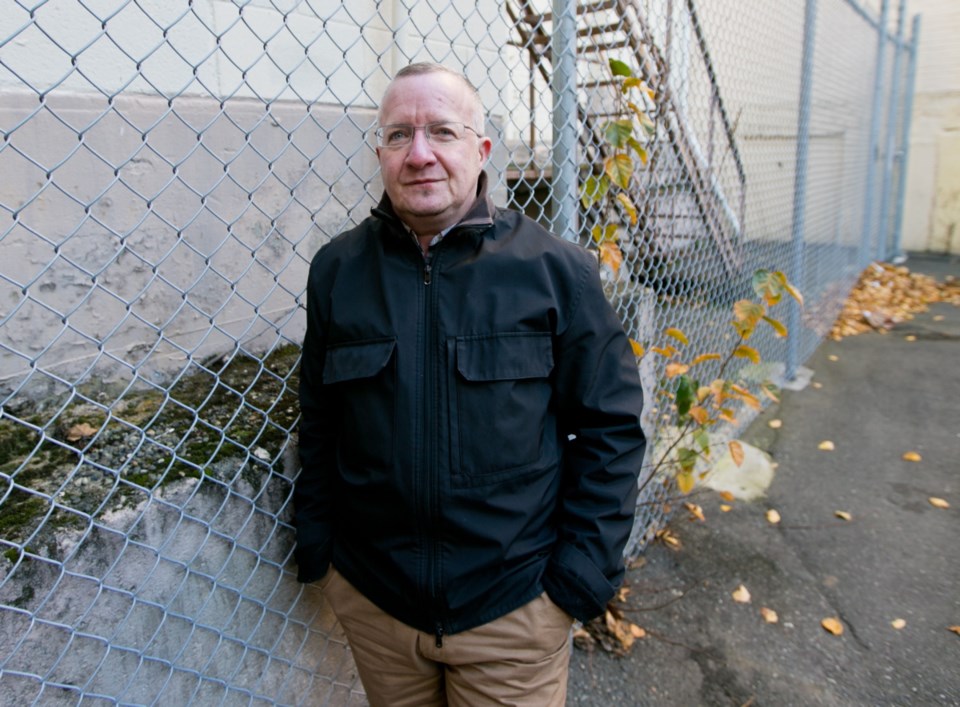A Montreal medical specialist who performs gender-realignment surgery for B.C. residents says she finds it “very weird” not to have seen a single patient from B.C. referred for female-to-male surgery in the two years since the Medical Services Plan announced it would lift a funding ban on the procedures.
“It doesn’t make sense for me,” said Dr. Maud Belanger, one of two surgeons at a private Montreal hospital who perform surgeries to align patients’ genitals with their identities.
In contrast, the two have provided 67 male-to-female surgeries for B.C. patients covered by MSP in the same period.
Even if referrals from B.C. began immediately, patients awaiting phalloplasties and other female-to-male genital surgeries would be at the bottom of a waitlist that now reaches to March 2016, Belanger said.
The B.C. Ministry of Health says no female-to-male surgeries have taken place since funding was re-instated in October 2012 because none of the people on a waiting list came forward to accept the offer of surgery — something transgender advocates have trouble believing.
Belanger said she plans to contact a colleague active in WPATH — the international agency that sets standards for transgender care — to find out more.
“We need to see what’s going on,” she said.
Belanger said patients tell her every day that the realignment surgery has made their lives whole, which is why she can’t understand why people from B.C. would not seek a procedure the government has said it will fund.
Female-to-male surgery is much more complicated than a male-to-female operation. It requires three surgeries over the space of a year, with the first surgery requiring a two-week recovery in hospital. Each week, the clinic performs five or six male-to-female realignments for every female-to-male one, called phalloplasty, she said,
Noah Adams said he advocated to remove phalloplasty from B.C.’s “experimental” category and was on the list for surgery.
Now living in Toronto, he said he is further along the process through Ontario’s health plan than he would be had he stayed in B.C. He called the ministry’s statement about no one coming forward “unmitigated bulls--t.”
“I know several people who have been on the waiting list for years and none have been contacted about scheduling or otherwise moving forward with surgery, despite clearly wanting it,” Adams said.
The situation has prompted renewed calls for a B.C. surgery centre.
“The delivery of surgical services to trans people in B.C. is in a shocking state,” said lawyer barbara finlay, a founding member of the Canadian Bar Association’s Sexual Orientation and Gender Identity Conference.
“No other program requires patients to go out of province at their own expense and then have no surgical after-care for complications,” she said. “We need an in-province surgical care centre with properly trained staff, equally accessible to all British Columbians.”
Beginning in April, the Provincial Health Services Authority will review how B.C. can improve access to care for people who require transgender surgery, said authority chief operating officer Arden Krystalin in an Oct. 30 statement.
But Dara Parker, executive director of Qmunity, a B.C. gender advocacy group, who also advocates surgeries in B.C., said more funding for “gender-affirmation surgeries” is needed now.
The ministry has no plans to perform such surgeries in B.C., said a spokeswoman, adding it’s important that “complex specialized surgeries” be done in facilities that perform many per year.
“This has been shown to improve the overall outcomes and reduce the number of complications from these procedures.”
Several years ago, the province considered establishing the only publicly funded gender-alignment surgery program in Canada, going so far as to pay a B.C. surgeon to train in Belgium, but the program did not pan out.
Victoria resident James Gardner, who is on the B.C. list for male alignment surgery, called it “troubling” that the waiting list already extends to 2016. He, too, hopes that B.C. will offer the surgery.
“Having to travel to Montreal for these surgeries is not realistic and can be unsafe for transgendered people who return home with no medical support services,” Gardner said.
Long before surgery is even contemplated, the province lacks primary-care resources to meet the specialized needs of transgendered patients’ health in Victoria, said ChrYs Tei, a spokesperson for Island Trans.
Specialized needs make up only a fraction of health costs for the population, said Tai, citing higher rates of smoking, substance abuse, alcohol addiction, suicide and risky behaviours.



